I’ve talked a lot about confirmation bias and how we can stay stuck inside our own heads. Our brains can either be our passport or our prison. It’s either your best friend or your fiercest opponent. But the good news is that you have the power to take back control.
One of the reasons why we stay stuck in our own heads is because we get caught up on our own thoughts. And it is really easy to do! While it’s important to acknowledge what we are feeling in the moment, by focusing on them too much, it can paralyze us.
Here are some things to remember when your thoughts start to consume you:
1. You are not your thoughts. Everything we identify ourselves with has to do with our thoughts and thought patterns. Our personalities and emotions are crafted because we attach ourselves to our thoughts, and that’s who we believe ourselves to be.
Since a good portion of our thoughts are negative, we relate more to complicated emotions like fear and guilt, leading to debilitating illnesses like depression and anxiety.
It’s important to understand that you are not the thought; you are the receiver of the thought. And you have a choice to accept or decline, especially those that don’t serve a positive purpose. Understanding this concept can bring positive results and help the healing process.
2. Detach yourself from your thoughts. Detaching from your thoughts will be difficult at first because you’ll notice an abundance throughout the day once you start becoming aware. And it’s impossible to catch all of them. Likewise, habits, especially internal habits, are challenging to break.
When trying to detach from your thoughts, think of it like you’re receiving a message from an unknown sender, and you have the choice to either accept it or let it go. Acknowledge the thought, and then let it go. Visualize those thoughts as waves in the ocean. Just as they rise and you are aware of their presence, they will eventually come down. This exercise can help you start the process of being mindful of what you are experiencing and feeling, but also letting them go and not consuming your thoughts.
3. Meditate. Meditation is a great tool to clear your mind of unnecessary clutter and can help you relax and reset. In addition, it really helps you stay mindful and in the moment.
Just as it’s tough to become aware of your thoughts, sitting still and inner stillness can also be challenging. You never know how many thoughts you have until you try to meditate. So, start small and work your way up.
For example, start with 5 minutes for one week and add minutes the next. If you find your mind wandering during meditation, that’s normal. It means that you’re becoming aware of your thoughts. When you realize you’ve drifted, go back to the meditation. You can also choose guided meditations to start. You’ll find that you can focus more while someone is giving you instructions.
Remember, we are all living in cages with the door wide open. Like Morpheus says in The Matrix, we need to free our mind. You have the ability to determine what your beliefs are about yourself and the world around you and your experiences.




